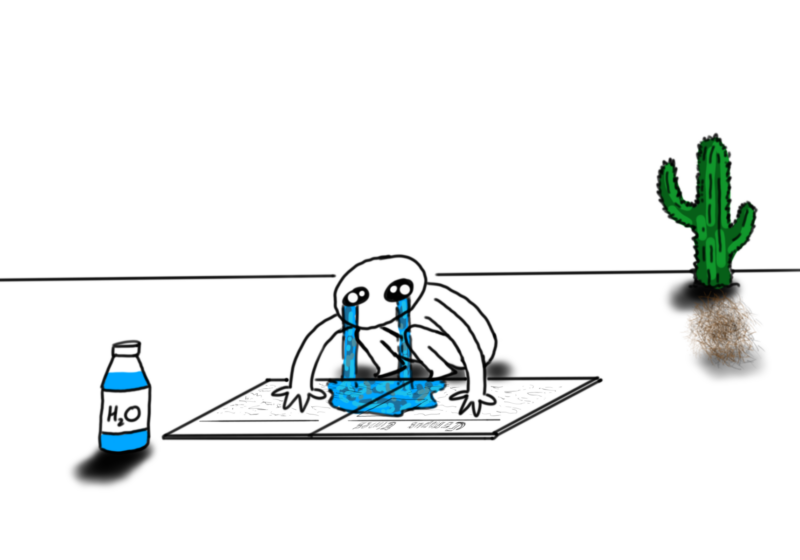We write to express our sincere concerns about the Mary Jo White report and its impact on our community and students everywhere who face sexual harassment. Here, we highlight some of our concerns, but we are preparing a longer rebuttal.
Several witnesses have told us that their testimony, beliefs, and evidence were misrepresented. We also have heard previously from people whose testimony we now can see was suppressed — including most notably many individuals who came to White to talk about the culture of retaliation at UR, both relevant to their own cases and relevant to ours. The suppression of this evidence could not have been an oversight. Several of these witnesses were called back for multiple interviews by Debevoise and Plimpton attorneys, and some testified about retaliation by the major players in our case. Undoubtedly, such testimony interfered with a narrative that exonerated UR leadership, and was therefore excluded, despite the clear pattern of retaliatory behavior these witnesses established.
At the same time, White promised that the report would be definitive and stand on its own. In court, our audio recordings — from multiple sources and on numerous occasions central to our legal claims — will establish blatant factual inaccuracies in White’s narrative and support the specific claims and events described in our lawsuit. One additional witness outside of our lawsuit, after reading the report, has now provided us with new additional recordings relevant to our specific legal claims.
Beyond this, we urge the community to read White’s report with a careful eye since her techniques are practiced and subtle. We find the lengthy attack on Kidd, Bixby, Cantlon, and other witnesses to be shocking precisely because the report confirms most of their claims. White finds: four consensual relationships with students (including one with an undergraduate student) (page 29); inherent “asymmetry of power” in these relationships and that they were “problematic” (page 75); and that Professor T. Florian Jaeger blurred boundaries (page 29), was flirtatious with students (page 29), used sexualized language in academic settings (page 29), used drugs at retreats leading to a hospital visit (page 56), made inappropriate comments (pages 58-59), had “loud sex” that students could hear (pages 60), “leered” at women, including in a BCS classroom (page 60), objectified women (page 60), served on a thesis committee for a student he had sex with (page 76), mentored and wrote a recommendation for a student while in a sexual relationship with her (page 77), and had sexual relationships with at least four other women he helped bring to UR to give academic talks (page 77). White finds that he sent one unwanted picture of his penis and one unwanted “racy” picture to women in the department (page 58). White acknowledges that female students specifically avoided Jaeger (page 47) and that this led women to miss educational opportunities (page 62).
Despite promises of transparency, the released documents do not include the Nearpass report nor the summary of it provided to faculty, both of which were the outcome of UR’s investigative processes and white-washed his behavior. These reports paint a generous picture of Jaeger that differs starkly from White’s characterization, showing that UR investigations are deeply flawed and inherently biased — a fact that White could have and should have confirmed.
The report defends Jaeger from accusations of sexual assault and quid-pro-quo harassment, neither of which our complaints allege — undoubtedly, reporting such straw man findings helps UR’s image. However, it harms the students who came forward and the complainants by making them look like liars when in fact their complaints have been legitimized. White lists in her report the use of terms like “sexual predator,” “gaslighting,” “fear,” “cult-like,” and “cut-throat” and says that they are exaggerated and unfair. But, as our complaint makes clear, these are in fact quotes from student witnesses in the department and it can hardly be deemed an exaggeration to include them.
White is subtle in obfuscating many key incidents relating to retaliation. To give just one example, in tackling the issue of the meeting where DeAngelis denounced the complainants by wrongly characterizing their emails, White simply ignores aspects of this meeting that are damaging to UR’s case — for instance, that DeAngelis falsely accused the complainants in public of harming Jaeger’s (blindly reviewed) conference submissions. White then seems to buy wholesale DeAngelis’ defense for this defamation that he did not use names; but, as an attorney, White knows that defamation can be committed if the targets are reasonably identifiable, which they were. Detailed analysis of this point and others would have proved problematic and so are ignored completely, undoubtedly with the hope that her narrative would be compelling enough that nobody would question the details.
In the report, the treatment of witnesses and evidence is repeatedly slanted. White questions, for instance, Kidd’s own testimony that she was disturbed by Jaeger’s behavior, while granting that at least 10 other students avoided him too because of it. Kidd is criticized for quoting only part of Jaeger’s Facebook messages, but White does not acknowledge that Kidd did so in order to highlight specifically what was problematic to people who were already refusing to see them. Kidd has previously provided the surrounding context to both faculty and journalists and has nothing to hide. Moreover, the primary thrust of Kidd’s claim that the messages were used to support — that Jaeger frequently used demeaning, insulting sexual language with women — is fully endorsed by White. White confirms that Kidd slept in the lab, but tries to cast doubt on her assertion that she did so to avoid Jaeger (though she confirms many others avoided him) not with evidence, but by citing what witnesses said they “assumed” about the reason at the time (page 86).
White also uses subtle techniques to negate student testimony. One student who complained about harassment is dismissed by White because early in her career she emailed Jaeger about coming to his house to do laundry and cook (page 62). This misrepresentation of her state of mind is deeply upsetting to the witness because White gave her no opportunity to refute it, even though she participated in the investigation. This witness intends to come out forcefully in public to correct White’s mischaracterizations. In another example, White uses the fact that women, including 10 witnesses, Kidd, and Bixby cited both sexual and non-sexual reasons for avoiding Jaeger, contending that this somehow mitigates the problems he created for them with his sexualized behavior (pages 63-64). It is as though White believes violating two rules means you can’t be found guilty of violating one.
To our eye, White’s report seems to be primarily about exonerating as many people as possible in the face of overwhelming evidence. It is a document of advocacy dressed up as an impartial judgment. White attempts this by admitting misbehavior while denying that the many abuses of students she records are illegal. This is an embarrassment for our institution. It damages students’ understanding of their rights, and creates confusion about the definition of sexual harassment and hostile environment. Without a forceful denouncement of the ethical failings of Jaeger’s conduct and the administrators who protected him, women at UR will see they are alone and left to fend for themselves. After seeing the University spend millions to defend itself against women with legitimate complaints by twisting their own words against them, students would be perfectly justified in feeling too intimidated to come forward.
Finally, in what may be one of the worst violations of confidentiality by UR since these events started, when the report was initially posted online, the .zip file containing the exhibits used the real names of witnesses and victims who had asked to be anonymized. Worse, the naming convention used by White’s firm explicitly linked their real names to the pseudonyms in our federal complaint, against explicit and repeated promises of confidentiality to witnesses. The witnesses whose identities were revealed are now terrified. This act by the firm UR employed will discourage victims from coming forward. Indeed, some of the witnesses think it was deliberately done to intimidate them.
Shortly after the White investigation was announced, we expressed our skepticism that the investigation could do anything other than exonerate UR. After all, who would hire White on a future $4.5 million case if she weakened her clients’ position in court? We are confident that the Board of Trustees and likely many faculty hoped that with the completion of White’s report, the community could move forward. In our view, this would have required accountability. But the lack of accountability here has left the 16 students in our complaint, most of whom White admits were damaged, with still no justice or relief.
The report moves UR, and women, backward.





